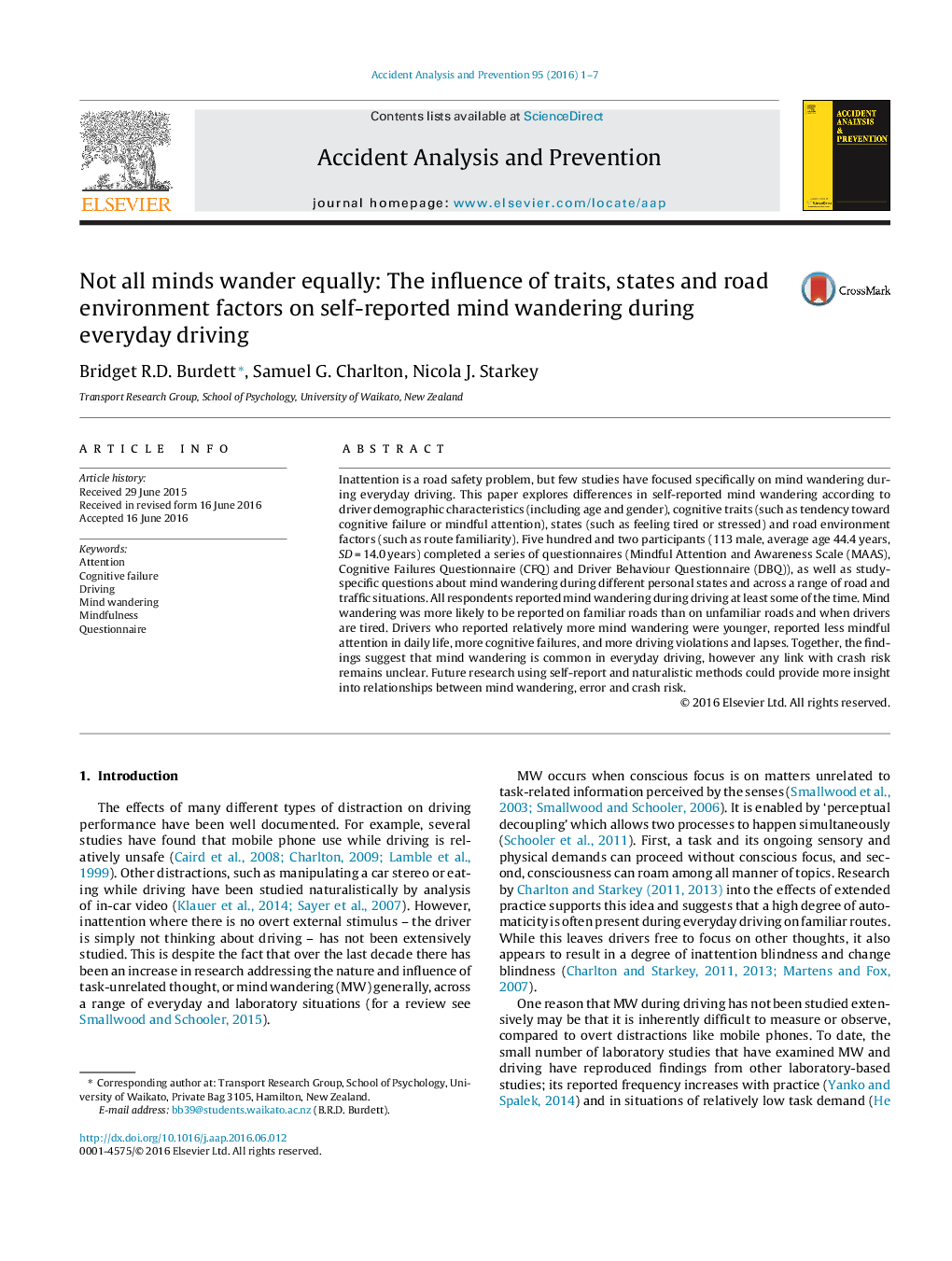| کد مقاله | کد نشریه | سال انتشار | مقاله انگلیسی | نسخه تمام متن |
|---|---|---|---|---|
| 571906 | 877327 | 2016 | 7 صفحه PDF | دانلود رایگان |
• All drivers report mind wandering during everyday driving at least occasionally.
• Younger drivers report more mind wandering than older drivers.
• Mind wandering is most likely on familiar roads and when drivers are tired.
• Asking drivers to ‘pay attention’ is unlikely to change mind wandering frequency.
Inattention is a road safety problem, but few studies have focused specifically on mind wandering during everyday driving. This paper explores differences in self-reported mind wandering according to driver demographic characteristics (including age and gender), cognitive traits (such as tendency toward cognitive failure or mindful attention), states (such as feeling tired or stressed) and road environment factors (such as route familiarity). Five hundred and two participants (113 male, average age 44.4 years, SD = 14.0 years) completed a series of questionnaires (Mindful Attention and Awareness Scale (MAAS), Cognitive Failures Questionnaire (CFQ) and Driver Behaviour Questionnaire (DBQ)), as well as study-specific questions about mind wandering during different personal states and across a range of road and traffic situations. All respondents reported mind wandering during driving at least some of the time. Mind wandering was more likely to be reported on familiar roads than on unfamiliar roads and when drivers are tired. Drivers who reported relatively more mind wandering were younger, reported less mindful attention in daily life, more cognitive failures, and more driving violations and lapses. Together, the findings suggest that mind wandering is common in everyday driving, however any link with crash risk remains unclear. Future research using self-report and naturalistic methods could provide more insight into relationships between mind wandering, error and crash risk.
Journal: Accident Analysis & Prevention - Volume 95, Part A, October 2016, Pages 1–7
